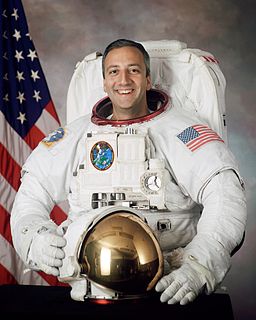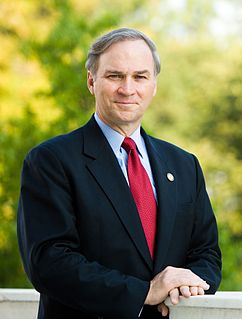A Quote by John Glenn
Just to continue a space program because it's a space program? No, I don't think we have an obligation for that.
Quote Topics
Related Quotes
One of the great intellectual mistakes Einstein made is that he thought that space and time are physically or ontologically entangled. In the present non-spatial universal computational program, space and time happen to be entangled to the extent that, under certain unique circumstances, changes in spatial measurements indicate changes in temporal ones. However, a change in the program itself may cause space and time to disentangle.
I had always been interested in the space program, and I didn't know if I could be an astronaut like I'd dreamt about when I was a little kid - to me it sounded kind of silly, someone grow up to be an astronaut - but, when I was in my 20s, I thought maybe I can get a job with NASA or a contractor, do something with the space program.
We needed a "psychenaut" program to be the opposite of the astronaut program in order to explore the enormous domains and dimensions of inner space. We need inner space exploration. We need to have access to more capacities in order to be adequate stewards of this most incredible process of transformation in human history.
Why did I want to be an astronaut? That's not an easy question to answer because I know a lot of kids want to be astronauts when they grow up but it stuck with me and I think just maybe growing up in Houston and always having the astronauts and the Johnson Space Center in my backyard, I was always aware of the space program.
Qian Xuesen, the father of the Chinese Space Program, studied in the United States, and he was a protégé of Theodore Von Carmen's at Cal Tech and helped start the jet propulsion laboratory there, and then he got caught up in the anti-communism wave and was accused of being a spy and was actually deported back to China where he built from nothing, their entire missile and space program. So, in a way, in a very real way, the United States in trying to protect so-called protect our secrets and throwing this guy out of the country, we helped seed and start the Chinese missile program.





























